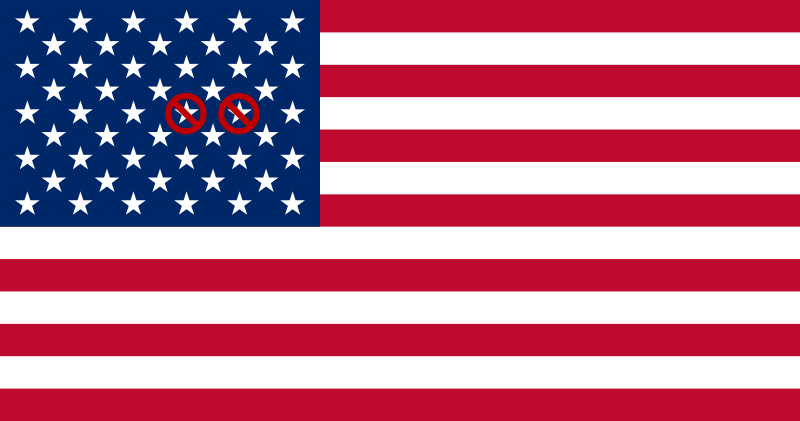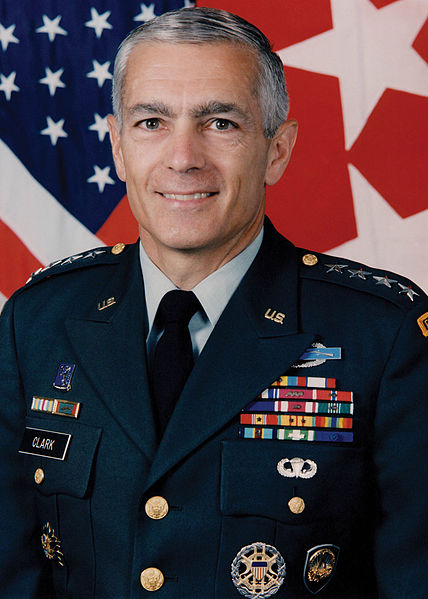Here is my list of the top nine vice presidential candidates for the presumptive Republican nominee, John McCain, in the order of most to least strategic and practical.
 1.) Fmr. Gov. Mitt Romney of Massachusetts (Age: 61)—
1.) Fmr. Gov. Mitt Romney of Massachusetts (Age: 61)—-Romney has the support of many conservatives in the party.
-He has extensive business experience in a time of an economic recession.
-Romney is a Mormon, and picking him could drive up the turnout of Mormon voters in key swing states like Nevada and Colorado.
-He could put his home state of Michigan (17 electoral votes) into play for Republicans, where his father was a popular governor.
-He is well-known nationally and excellent at fundraising--something McCain desperately needs to rival the cash machine that is Barack Obama. The McCain campaign believes that he could raise as much as $60 million in two months.
-He is a solid debater, as demonstrated in his performances against John McCain in the primaries, and he has been vetted and tested by the media.
-He would be an excellent attack dog against Obama.
-But, has flip-flopped on many,
many issues and is seen as “fake” by many voters.
-His Mormon faith would not sit well with evangelical voters.
-Would have little appeal to working class whites that do not like Obama.
-Romney and McCain have not gotten along well since the
competitive New Hampshire primary, and are still not on the best personal terms.
 2.) Gov. Charlie Crist of Florida (Age: 51)—
2.) Gov. Charlie Crist of Florida (Age: 51)—-Crist endorsed McCain before the
Florida primary and campaigned with him frequently.
-Crist won Florida handily in 2006 in an otherwise dreadful election year for the GOP.
-He is likely to have a future in the national GOP.
-Is strong on crime, and and is cutting the state's budget, which is making Florida taxpayers very happy.
-He is pro-life, pro-NRA, pro-death penalty, but is also "green."
-Would help to secure
Florida’s 27 electoral votes, and is a purple state that is essential to Republican victory in November.
-He was born in Pennsylvania, so he might help to deliver votes in that pivotal swing state.
-But, he's fairly new as governor--he was inaugurated in 2007.
-Crist divorced his wife 28 years ago, and has since not gotten re-married, so that might not sit well with family values voters.
-If McCain can't win Florida without Crist, then he's in serious trouble anyway.
 3.) Gov. Tim Pawlenty of Minnesota (Age: 47)—
3.) Gov. Tim Pawlenty of Minnesota (Age: 47)—-Pawlenty is a young, upstart politician from a region of traditionally blue states.
-Could put Minnesota into play for the Republicans, which has 10 electoral votes and has solidly voted Democratic since '72.
-The national co-chairman of McCain’s campaign, and was one of his earliest backers.
-Is generally liked by the fiscal and social conservative wings of the party.
-His youth could offset McCain’s maturity.
-Has an immigration plan that is more strict (conservative) than McCain’s, which could bring balance to the ticket.
-But, he is not well-known beyond his home state, and might not bring out traditional conservatives the way other candidates can.
-Might be seen as a "safe" choice, when the GOP needs excitement to rival Barack Obama.
-
Recent polls show that Obama is way out in front in Minnesota, and Pawlenty might not be able to deliver the state, which would cancel out the top reason for choosing him.
 4.) Rep. Bob Portman of Ohio (Age: 52)—
4.) Rep. Bob Portman of Ohio (Age: 52)—-Portman was a six term representative from
Ohio—a crucial swing state in November.
-From 2006-2007, he was the Director of the Office of Management and Budget, which could be reassuring to voters on their number one issue: the economy—and an issue that McCain is not particularly strong on (he said so himself).
-He provides legislative (Congressman), executive (George W. Bush's Cabinet), diplomatic (
U.S. trade representative) and economic (Office of Management and Budget director) backgrounds.
-He is 52, so that would contrast McCain’s age.
-Received an 89% lifetime American Conservative Union rating, which would reassure the Base.
-According to columnist Robert Novak, Portman is President Bush's choice for McCain's VP.
-But, he won’t have that much sway in
Ohio because he was only a representative.
-He is not well-known nationally.
-Because he is friends with and worked under Bush, he and McCain would be tied to him even more, which is the last thing the Republicans want.
 5.) Gov. Sarah Palin of Alaska (Age: 44)
5.) Gov. Sarah Palin of Alaska (Age: 44)-Palin is a rising star in the party and is the most popular governor in America, with an approval rating around 90%.
-The fact that she's a woman--an attractive one at that--would help McCain pick up some support white women who supported Hillary Clinton who are not quite ready to jump on board with Barack Obama. I cannot stress how important that could be come November.
-She is a strong fiscal conservative and a ferocious fighter of corruption--even within her own party--which would match well with McCain's track record.
-She brings youth to the ticket, and is a reformer.
-She's popular with the conservative wing of the party--she is a lifetime member of the National Rifle Association and she is staunchly pro-life.
-Not connected to the current (unpopular) administration, and would be seen as a Washington outsider.
-But, she provides no regional electoral support.
-Does not have much experience--she was elected governor in 2006 and was a city councilwoman for two terms before that.
-She is not known to the general electorate and might outshine McCain.
 6.) Fmr. Gov. Mike Huckabee of Arkansas (Age: 52)—
6.) Fmr. Gov. Mike Huckabee of Arkansas (Age: 52)—-Huckabee is very popular with social conservatives and the religious right.
-Has is exciting, vibrant and humorous which would balance out well with McCain.
-Would almost guarantee Republican victory in the south by appealing to evangelical voters.
-Many conservatives would feel more comfortable voting for a ticket which would put "a man of faith" in the White House.
-He received about 10% of the vote in most Republican primaries, even after he dropped out in March.
-He is also well-known on a national level because of his unexpected success in the Republican primaries.
-He embodies change, which is something that the vast majority of voters want this election.
-But, his economic policies are radical and were shot down hard by the
Wall Street Journal.
-His nomination would irritate and alienate economic and foreign policy conservatives.
-He has said many controversial things as pastor and governor, and does not believe in evolution.
-Huck has already made many enemies in his short time on the national stage, and usually the first rule of picking a VP is to risk as little harm as possible.
-Provides no regional electoral support.
 7.) Sen. Lindsey Graham of South Carolina (Age: 52)—
7.) Sen. Lindsey Graham of South Carolina (Age: 52)—
-Graham is considered to be fairly conservative, but sometimes does not necessarily play to party lines.
-Was an early supporter of McCain in 2000 and 2008 and is a good friend of McCain’s.
-His selection would help solidify the conservative base, especially in the south.
-Would help with the religious right.
-But, he is a supporter of McCain-Kennedy comprehensive immigration reform, which does not help with hard-line conservatives.
-He is not the most popular guy among conservative elites, and may be too similar to McCain on a number of issues.
-He provides no regional electoral support.
 8.) Gov. Mark Sanford of South Carolina (Age: 47)—
8.) Gov. Mark Sanford of South Carolina (Age: 47)—-
Sanford has built a reputation as a fighter on pork barrel spending.
-He is young, which could offset McCain’s age problem.
-He is a southern governor, who has the potential to deliver southern votes.
-He is a fiscal conservative, has an independent streak, and is almost libertarian at times.
-But, he is not known to the general electorate.
-Having two “mavericks” on the same ticket might not be the best thing for the Republicans.
-He provides no regional electoral support.
 9.) Sen. Joe Lieberman of Connecticut (Age: 66)—
9.) Sen. Joe Lieberman of Connecticut (Age: 66)—-Lieberman was a Democrat until 2006, when he became an independent.
-He was on the 2000 Democratic ticket with Al Gore.
-Might have appeal with other independents, but it is not very likely.
-Is a good friend of McCain’s, and might speak at the 2008 Republican National Convention.
-Is a strong supporter of the war in
Iraq.
-But, he and Lieberman are too similar in their crossover appeal.
-Would not help win over the conservative base in the Republican Party—a base that McCain desperately needs if he wants to stand a chance against Obama.
-His age does not contrast enough with McCain's.
-Provides no regional electoral support.
 The Democratic National Committee's Rules and Bylaws Committee met in Washington on Saturday to discuss possible solutions to the delicate issues of seating Michigan and Florida's delegates.
The Democratic National Committee's Rules and Bylaws Committee met in Washington on Saturday to discuss possible solutions to the delicate issues of seating Michigan and Florida's delegates.

























